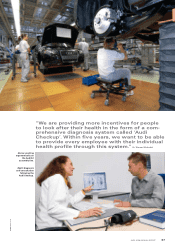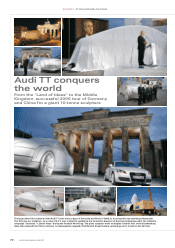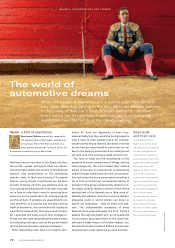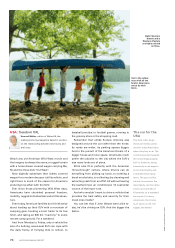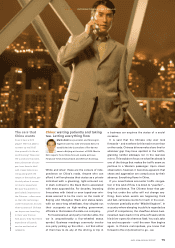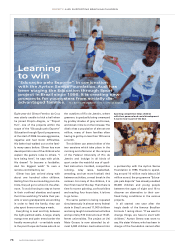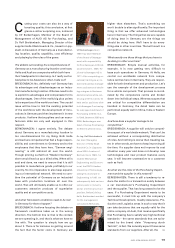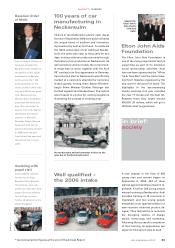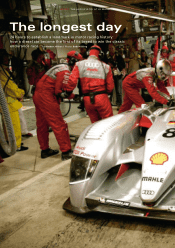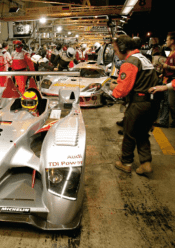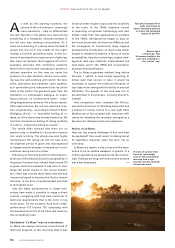Audi 2006 Annual Report Download - page 78
Download and view the complete annual report
Please find page 78 of the 2006 Audi annual report below. You can navigate through the pages in the report by either clicking on the pages listed below, or by using the keyword search tool below to find specific information within the annual report.
Learning
to win
“Educação pelo Esporte”: in conjunction
with the Ayrton Senna Foundation, Audi has
been staging the Education through Sport
project in Brazil since 1996. It is creating new
prospects for youngsters from socially dis-
advantaged families.
Text Kristina Michahelles // Photos Renan Cepeda
Sporting competition helps children
with their personal and social development.
A warm meal is part of the deal.
SOCIETY: AUDI SUPPORTING BRAZILIAN CHILDREN
76 AUDI 2006 ANNUAL REPORT
Eight-year-old Gilmar Ferreira da Cruz
was utterly unable to kick a ball when
he joined Projeto Alegria, or “Project
Fun”, one of the projects within the
scope of the “Educação pelo Esporte”
(Education through Sport) programme,
at the start of 2006. He was aggressive,
negative and had motor difficulties.
His father had walked out on the fami-
ly many years before. Gilmar has now
developed into one of the children who
explain the game’s rules to others. “I
love being here”, he says with pride.
His dream? To become a footballer.
And his biggest wish? To own a
remote-controlled toy car.
Gilmar has just arrived along with
about one hundred other children.
Hailing from the surrounding poor dis-
tricts, they all go to school in the after-
noon. To avoid having to stay at home
in their confined shanties and spend
their time watching TV while their par-
ents or even grandparents are working
in order to feed the family, they can
play sport three mornings a week.
Everything is neat and tidy between
the light-painted walls. A large, shady
mango tree and palm trees border the
freshly mown pitch – a veritable oasis
in the poor Duque de Caxias suburb on
the outskirts of Rio de Janeiro, where
greenery is gradually being swamped
by grubby shades of grey and brown,
and street crime is on the increase. The
district has a population of almost one
million, many of them families often
having to get by on less than 100 euros
a month.
The children can attend either of the
two sessions which take place in the
morning and afternoon at the campus
of the Federal University of Rio de
Janeiro and indulge in all kinds of
sport under the watchful eye of quali-
fied instructors. Football, competitive
running, relay races, basketball,
wrestling, and yet more football. And
between activities, a meal break in the
canteen. For many of the children, it is
their first meal of the day. Then there is
time for some painting, craft activities
and reading. Four hours later, it is time
to go home.
The same pattern is being repeated
simultaneously in almost every federal
state in Brazil: around 11,000 children
are being taught recreational activities
and sports by 510 instructors at 16 dif-
ferent universities. The project at Uni
Mato Grosso is now attended by al-
most 5,000 children. Audi entered into
a partnership with the Ayrton Senna
Foundation in 1996. Thanks to spend-
ing around 10 million reais (about 3.6
million euros), the programme “Educa-
ção pelo Esporte” has already enabled
80,000 children and young people
between the ages of eight and 18 to
discover an alternative to their con-
fined living conditions in the various
projects.
It all started one year after the
tragic death of the famous Brazilian
Formula 1 racing driver. “If we want to
change things, we have to start with
children,” Ayrton Senna was wont to
say. His sister Viviane, who has been in
charge of the foundation named after



